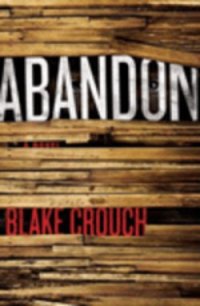Rita Hayworth and Shawshank Redemption - King Stephen Edwin (книги бесплатно без онлайн .txt) 📗
I think that maybe Andy got scared.
I’ve told you as well as I can how it is to be an institutional man. At first you can’t stand those four walls, then you get so you can abide them, then you get so you accept them … and then, as your body and your mind and your spirit adjust to life on an HO scale, you get to love them. You are told when to eat, when you can write letters, when you can smoke. If you’re at work in the laundry or the plate-shop, you’re assigned five minutes of each hour when you can go to the bathroom. For thirty-five years, my time was twenty-five minutes after the hour, and after thirty-five years, that’s the only time I ever felt the need to take a piss or have a crap: twenty-five minutes past the hour. And if for some reason I couldn’t go, the need would pass at thirty after, and come back at twenty-five past the next hour.
I think Andy may have been wrestling with that tiger — that institutional syndrome — and also with the bulking fears that all of it might have been for nothing.
How many nights must he have lain awake under his poster, thinking about that sewer line, knowing that the one chance was all he’d ever get? The blueprints might have told him how big the pipe’s bore was, but a blueprint couldn’t tell him what it would be like inside that pipe — if he would be able to breathe without choking, if the rats were big enough and mean enough to fight instead of retreating … and a blueprint couldn’t’ve told him what he’d find at the end of the pipe, when and if he got there. Here’s a joke even funnier than the parole would have been: Andy breaks into the sewer line, crawls through five hundred yards of choking, shit-smelling darkness, and comes up against a heavy-gauge mesh screen at the end of it all. Ha, ha, very funny.
That would have been on his mind. And if the long shot actually came in and he was able to get out, would he be able to get some civilian clothes and get away from the vicinity of the prison undetected? Last of all, suppose he got out of the pipe, got away from Shawshank before the alarm was raised, got to Buxton, overturned the right rock … and found nothing beneath? Not necessarily something so dramatic as arriving at the right field and discovering that a high-rise apartment building had been erected on the spot, or that it had turned into a supermarket parking lot. It could have been that some little kid who liked rocks noticed that piece of volcanic glass, turned it over, saw the deposit-box key, and took both it and the rock back to his room as souvenirs. Maybe a November hunter kicked the rock, left the key exposed, and a squirrel or a crow with a liking for bright shiny things had taken it away. Maybe there had been spring floods one year, breaching the wall, washing the key away. Maybe anything.
So I think — wild guess or not — that Andy just froze in place for a while. After all, you can’t lose if you don’t bet. What did he have to lose, you ask? His library, for one thing. The poison peace of institutional life, for another. Any future chance to grab his safe identity.
But he finally did it, just as I have told you. He tried … and, my! Didn’t he succeed in spectacular fashion? You tell me!
But did he get away, you ask? What happened after? What happened when he got to that meadow and turned over the rock … always assuming the rock was still there?
I can’t describe that scene for you, because this institutional man is still in this institution, and expects to be for years to come.
But I’ll tell you this. Very late in the summer of 1975, on 15 September to be exact, I got a postcard which had been mailed from the tiny town of McNary, Texas. That town is on the American side of the border, directly across from El Porvenir. The message side of the card was totally blank. But I know. I know it in my heart as surely as I know that we’re all going to die someday.
McNary was where he crossed. McNary, Texas.
So that’s my story, Jack. I never believed how long it would take to write it all down, or how many pages it would take. I started writing just after I got that postcard, and here I am finishing up on 14 January 1976. I’ve used three pencils right down to knuckle-stubs, and a whole tablet of paper. I’ve kept the pages carefully hidden … not that many could read my hen-tracks, anyway.
It stirred up more memories than I ever would have believed. Writing about yourself seems to be a lot like sticking a branch into clear river-water and roiling up the muddy bottom.
Well, you weren’t writing about yourself, I hear someone in the peanut-gallery saying. You were writing about Andy Dufresne. You’re nothing but a minor character in your own story. But you know, that’s just not so. It’s all about me, every damned word of it. Andy was the part of me they could never lock up, the part of me that will rejoice when the gates finally open for me and I walk out in my cheap suit with my twenty dollars of mad-money in my pocket. That part of me will rejoice no matter how old and broken and scared the rest of me is. I guess it’s just that Andy had more of that part than me, and used it better.
There are others here like me, others who remember Andy. We’re glad he’s gone, but a little sad, too. Some birds are not meant to be caged, that’s all. Their feathers are too bright, their songs too sweet and wild. So you let them go, or when you open the cage to feed them they somehow fly out past you. And the part of you that knows it was wrong to imprison them in the first place rejoices, but still, the place where you live is that much more drab and empty for their departure.
That’s the story and I’m glad I told it, even if it is a bit inconclusive and even though some of the memories the pencil prodded up (like that branch poking up the river-mud) made me feel a little sad and even older than I am. Thank you for listening. And Andy: If you’re really down there, as I believe you are, look at the stars for me just after sunset, and touch the sand, and wade in the water, and feel free.
I never expected to take up this narrative again, but here I am with the dog-eared, folded pages open on the desk in front of me. Here I am adding another three or four pages, writing in a brand-new tablet. A tablet I bought in a store — I just walked into a store on Portland’s Congress Street and bought it.
I thought I had put finish to my story in a Shawshank prison cell on a bleak January day in 1976. Now it’s late June of 1977 and I am sitting in a small, cheap room of the Brewster Hotel in Portland, adding to it. The window is open, and the sound of the traffic floating in seems huge, exciting, and intimidating. I have to look constantly over at the window and reassure myself that there are no bars on it. I sleep poorly at night because the bed in this room, as cheap as the room is, seems much too big and luxurious. I snap awake every morning promptly at six-thirty, feeling disorientated and frightened. My dreams are bad. I have a crazy feeling of free fall. The sensation is as terrifying as it is exhilarating.
What has happened in my life? Can’t you guess? I was paroled. After thirty-eight years of routine hearings and routine details (in the course of those thirty-eight years, three lawyers died on me), my parole was granted. I suppose they decided that, at the age of fifty-eight, I was finally used up enough to be deemed safe.
I came very close to burning the document you have just read. They search outgoing parolees just as carefully as they search incoming ‘new fish’. And beyond containing enough dynamite to assure me of a quick turnaround and another six or eight years inside, my ‘memoirs’ contained something else: the name of the town where I believe Andy Dufresne to be. Mexican police gladly cooperate with the American police, and I didn’t want my freedom — or my unwillingness to give up the story I’d worked so long and hard to write — to cost Andy his.




